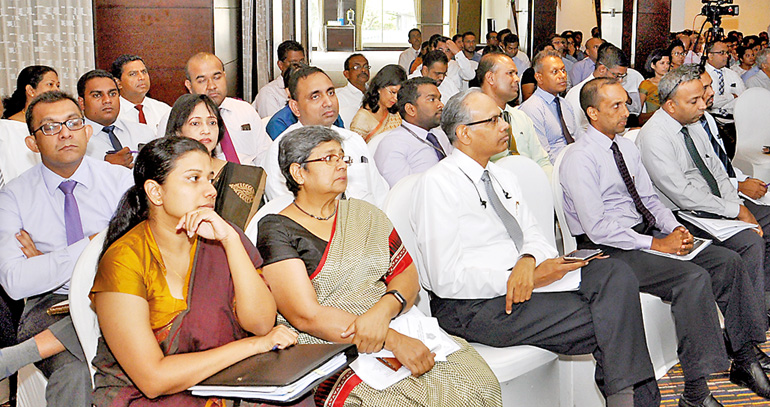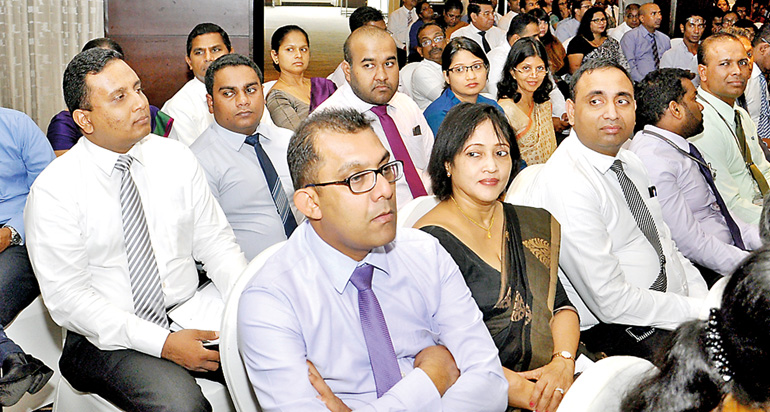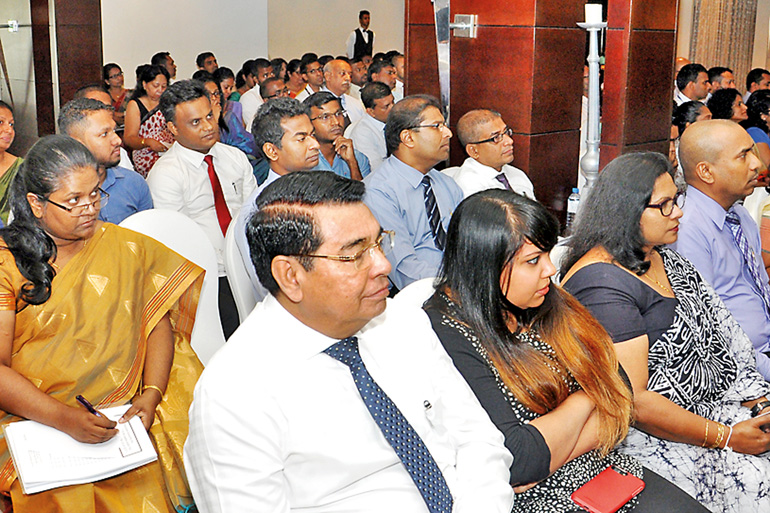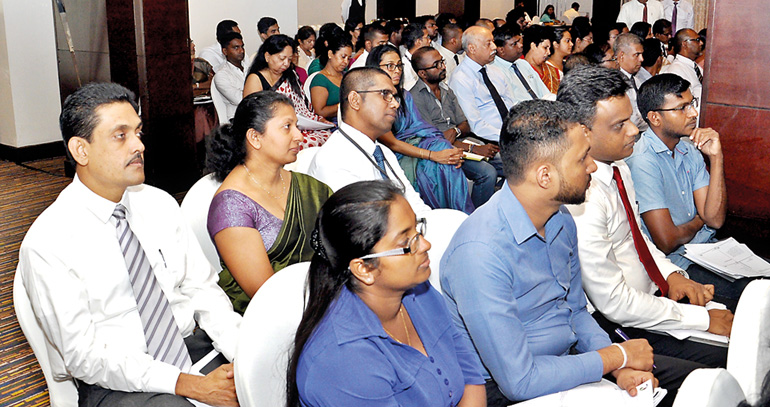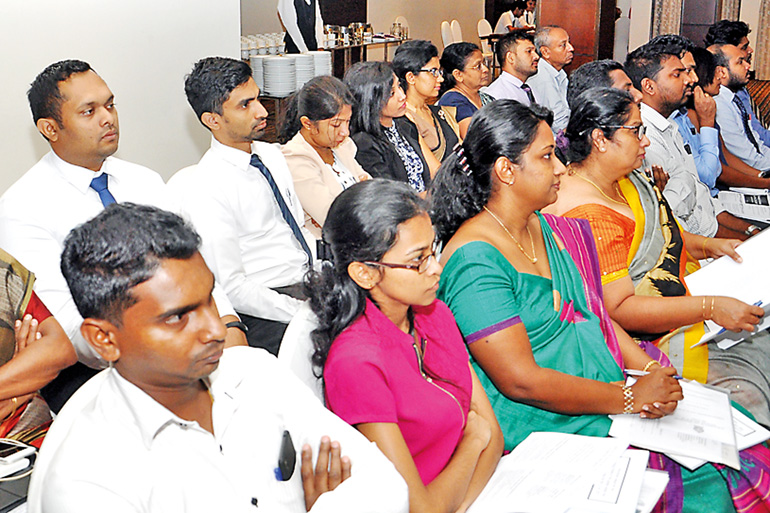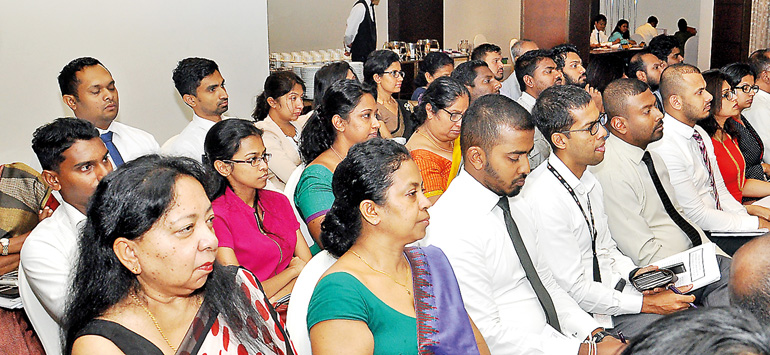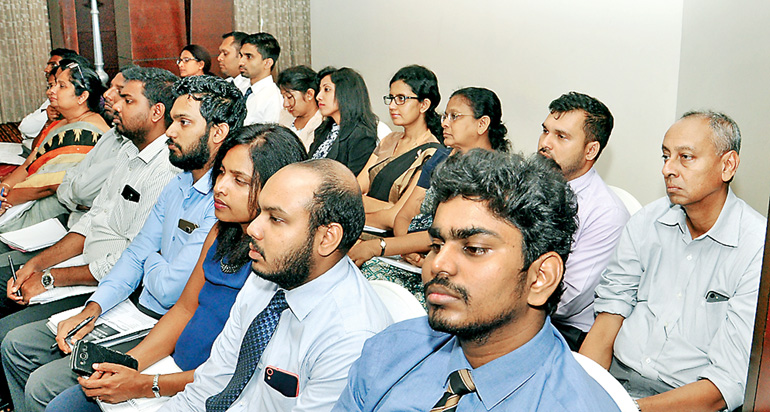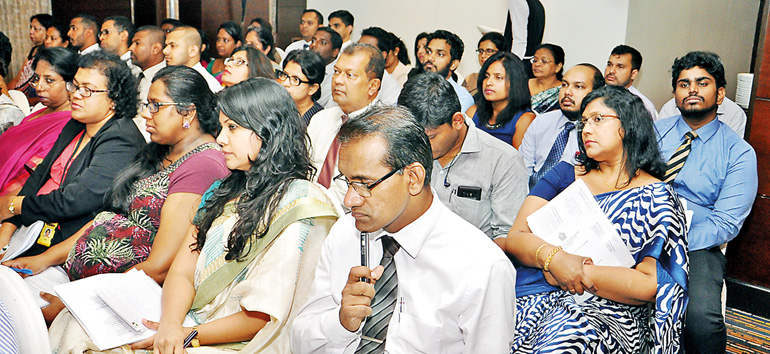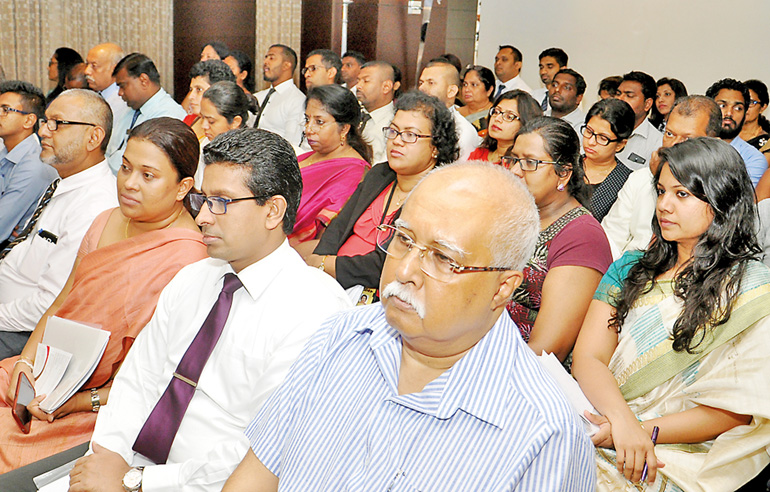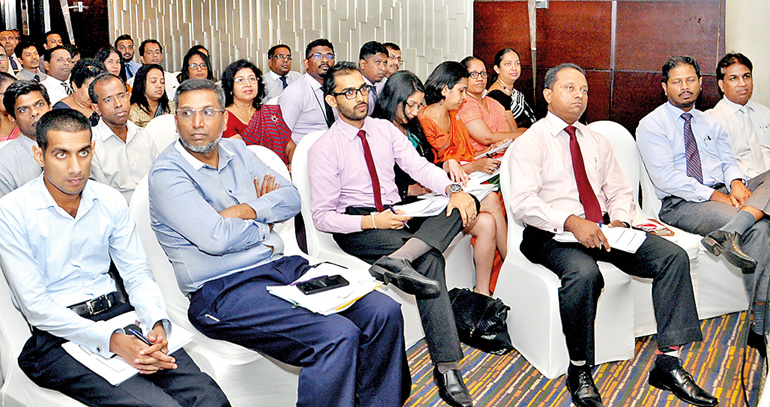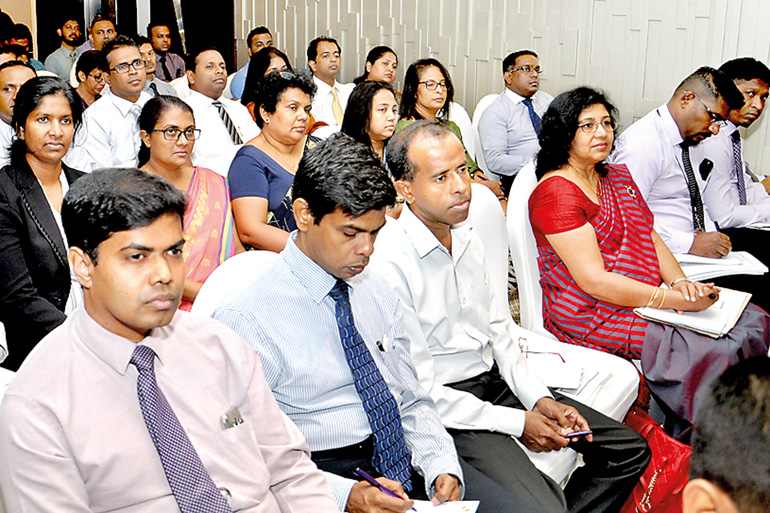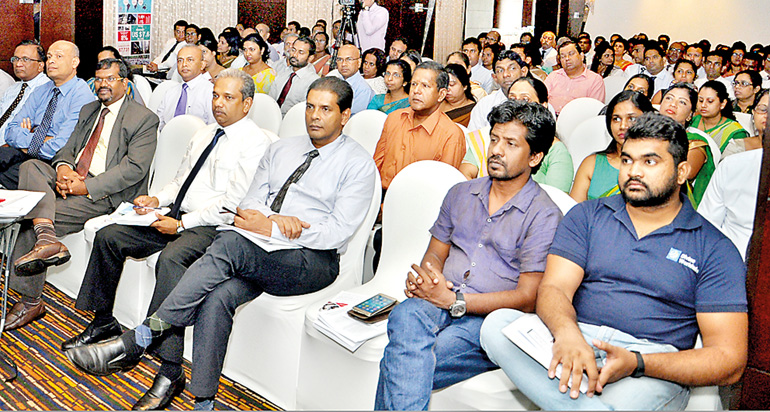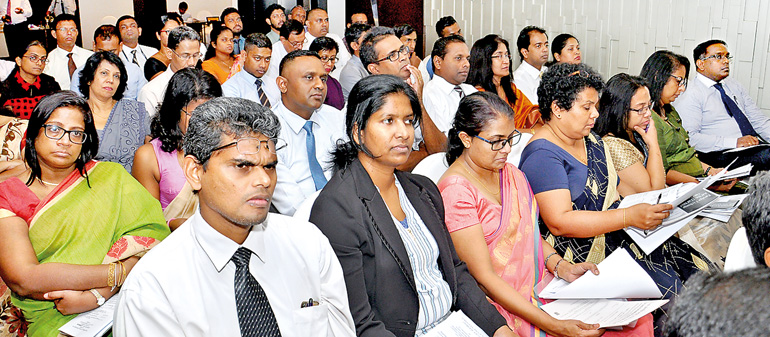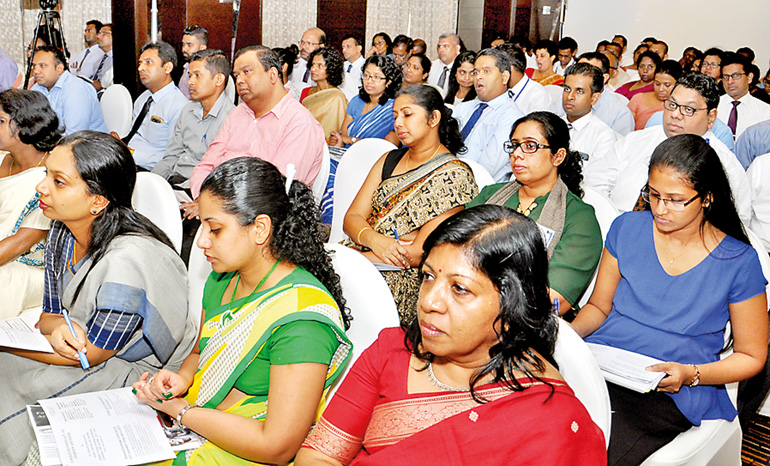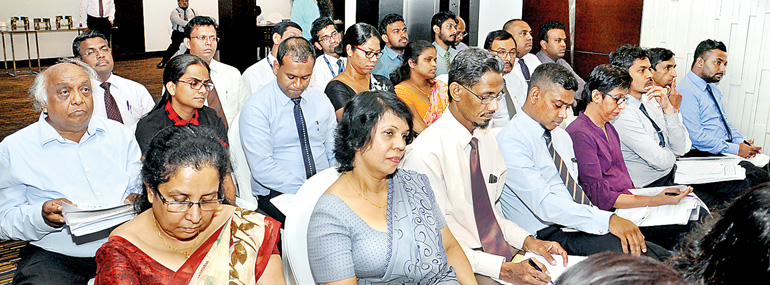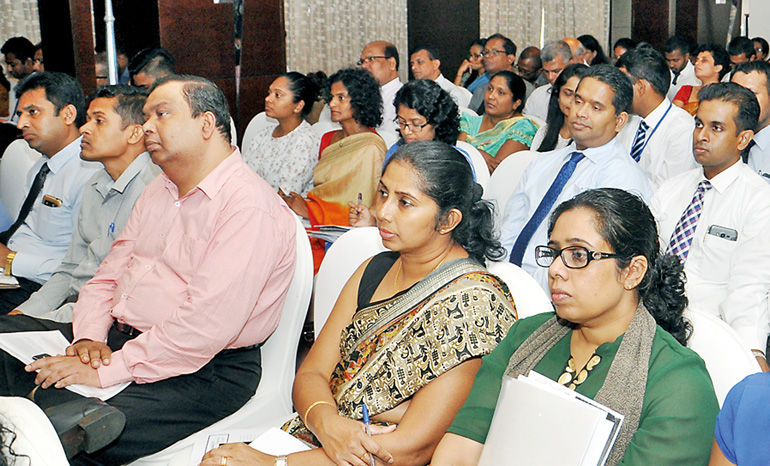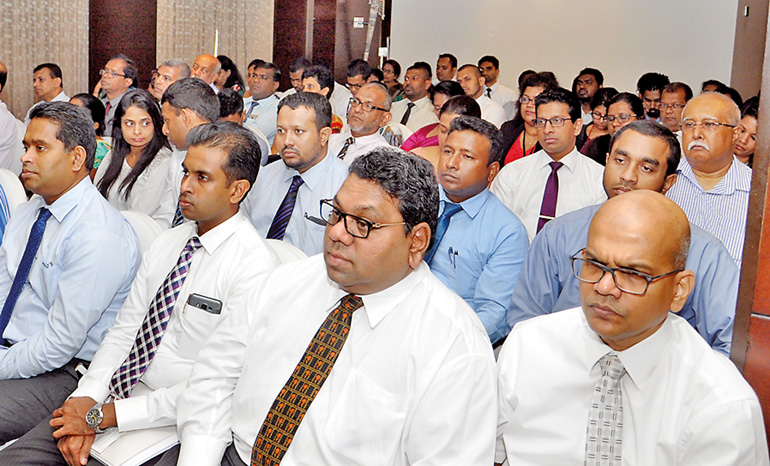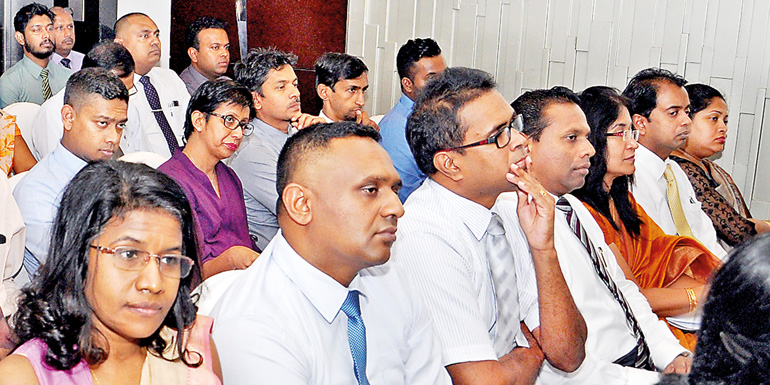Sunday Feb 22, 2026
Sunday Feb 22, 2026
Friday, 15 December 2017 08:18 - - {{hitsCtrl.values.hits}}
 From left: Dr. Dayanath Jayasuriya - Former Chairman of Securities and Exchange Commission of sri Lanka and Insurance Board of Sri Lanka, Premasiri Ratnayake - Fromer Chairman, Lanka SWIFT User Group, Former Chairman, Association of Compliance Officer of Banks, Former President, Sri Lanka Forex Association, Shiyara Dassanayake - Consultant, Corporate Services BDO Secretaries, Udeni Alawattage - Controller of Exchange, Moderator Sujeewa Rajapaksa and Pavithri Vithanage - Senior Assistant Director Legal and Compliance Central Bank of Sri Lanka
From left: Dr. Dayanath Jayasuriya - Former Chairman of Securities and Exchange Commission of sri Lanka and Insurance Board of Sri Lanka, Premasiri Ratnayake - Fromer Chairman, Lanka SWIFT User Group, Former Chairman, Association of Compliance Officer of Banks, Former President, Sri Lanka Forex Association, Shiyara Dassanayake - Consultant, Corporate Services BDO Secretaries, Udeni Alawattage - Controller of Exchange, Moderator Sujeewa Rajapaksa and Pavithri Vithanage - Senior Assistant Director Legal and Compliance Central Bank of Sri Lanka
A leading expert on anti-money laundering legislation last week said that if the new Foreign Exchange Act was not judiciously implemented, Sri Lanka would become vulnerable to being a safe haven for money launderers and criminal elements.
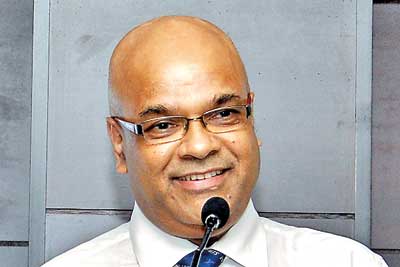 |
Exchange Controller Udeni Alawattage |
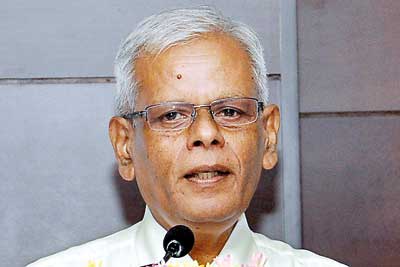 |
Premasiri Ratnayake - Fromer Chairman, Lanka SWIFT User Group, Former Chairman, Association of Compliance Officer of Banks, Former President, Sri Lanka Forex Association |
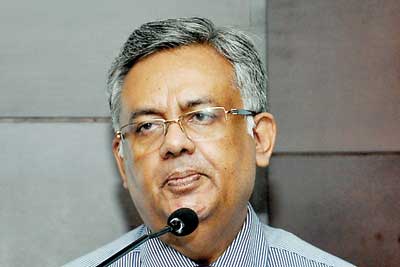 |
Dr. Dayanath Jayasuriya - Former Chairman of Securities and Exchange Commission of sri Lanka and Insurance Board of Sri Lanka |
“There are too many situations where there can be interference,” he said.
Noting that the scheme places too many duties with the Minister, Dr. Jayasuriya said that it does not recognise the intricacy of conducting and completing complex investigations.
“But we need to be thankful for the fact that we have Hon. Ranil Wickremesinghe as Prime Minister and Dr. Indrajit Coomaraswamy as Governor [of CBSL] and [Controller of Exchange Udeni Alawattage] and his staff in the department; so there is a certain degree of comfort. But the danger is that at a future point of time, if this legislature is to be implemented by people who do not take a very broad view of how foreign exchange has to be regulated, it can lead to a very bizarre situation,” he said.
Key features and issues pertaining to the new Foreign Exchange Act were highlighted at the seminar, sponsored by BDO, with the Daily FT functioning as the official newspaper partner. Dr. Jayasuriya in particular brought to the attention of the largely corporate audience the many salient features of the 2017 Act, as well as some of its shortcomings.
He said the old Act, formulated in 1953 and last amended in 1977, sought to confer powers and impose duties and restrictions in relation to gold, currency, payments securities, debts and the import, export, transfer and the settlement of property. It also set out to authorise the Central Bank to administer the provisions.
The new Act, meanwhile, seeks to promote and regulate foreign exchange, while vesting that responsibility with the Central Bank as the agent of the Government.
The repealed Act, which was amended seven times during its existence, does not affect suits, actions and proceedings instituted under it and pending as at 19 November and will be heard and concluded under that same repealed Act.
According to Dr. Jayasuriya, investigations and inquiries instituted under the repealed Act and pending on 19 November shall be concluded under the repealed Act within a period of six months from 20 November.
There will be no section to preserve previous regulations and notifications but new ones will refer to selected regulations.
The legislation referred to in the new Act are the Financial Transactions Reporting Act No. 6 of 2006, Banking Act No. 30 of 1988, Bills of Exchange Ordinance, Prevention of Money Laundering Act No. 5 of 2006, Convention on the Suppression of Terrorist Financing Act No. 25 of 2005, the Bribery Act, the Civil Procedure Code, Code of Criminal Procedure Act No. 15 of 1979, Monetary Law Act and the Inland Revenue Act.
The functionaries/authorities are as follows:
With regard to foreign exchange transactions, the Act states: “Save as otherwise provided in this Act, no person in or resident in Sri Lanka shall deal in foreign exchange within or outside Sri Lanka, by any act which involves the conversion of Sri Lankan Rupees or assets within Sri Lanka to foreign exchange, otherwise than through an authorised dealer, or to the extent specified in the permit, through a restricted dealer (Section 4(3)).”
Any permission, consent or authority granted under the Act, according to Dr. Jayasuriya, may be general or special, absolute or conditional, limited so as to expire on a specified date unless renewed and varied or revoked.
Authorised dealers include current or future licensed commercial banks or are specified in authorisation in the case of licensed specialised banks.
Any person, class or classes of persons to deal in foreign exchange within Sri Lanka as specified in a permit subject to CB terms and conditions are defined as restricted dealers. The Act states that the CBSL may grant special permission to any person not being an authorised dealer or restricted dealer to deal in foreign exchange within Sri Lanka for specific purposes as may be prescribed by the Minister by an order published in the gazette subject to terms and conditions.
According to the Act, any person in or resident in Sri Lanka who holds foreign exchange in a bank account in Sri Lanka or outside Sri Lanka or owns any foreign asset may utilise such foreign exchange or foreign asset for making any payment for, or in respect of, any current or capital transaction of such person, within or outside Sri Lanka. Any such payment made from foreign exchange held by such a person within Sri Lanka, according to the Act, shall be made through an authorised dealer or, to the extent specified in the permit, though a restricted dealer.
Pix by Ruwan Walpola
